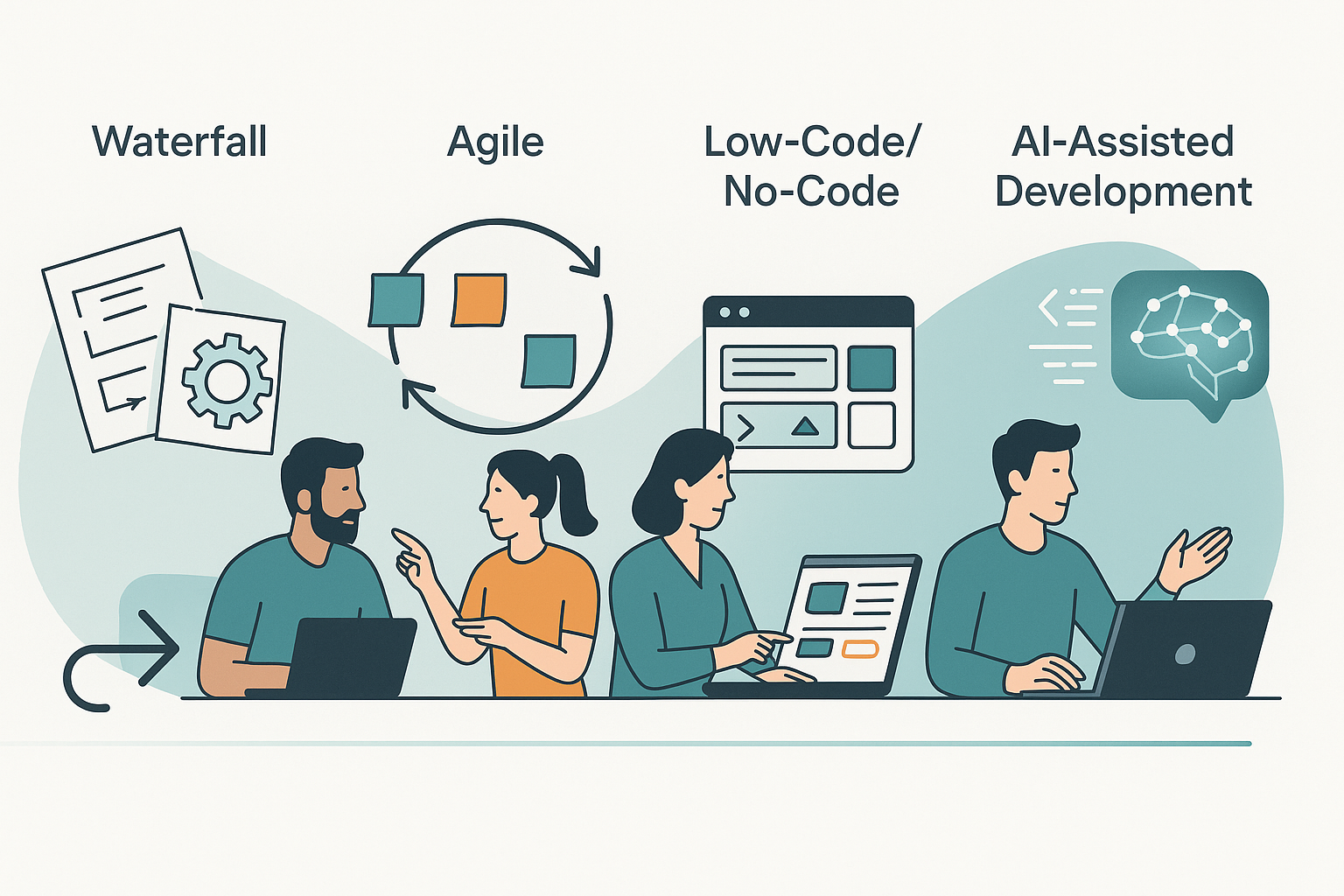Founders often underestimate the role of intuition. While business models pivot and products evolve, the people you bring into your startup—cofounders, first hires, investors—shape every step. Trusting your gut about people isn’t just instinct, it’s one of the most reliable guides you’ll have in uncertainty.
Read MoreMoving from Seed to Series A isn’t just about raising capital—it’s about changing how you build. Startups must shift from scrappy coding and MVPs to strategic roadmaps, scalable architectures, and security-first practices. These shifts aren’t optional, they’re survival.
Read MoreSoftware development has shifted from rigid Waterfall methods to Agile, Low-Code, and now AI-assisted approaches. Each era made building software faster and more accessible, but AI is redefining the developer’s role—from writing code to guiding and validating intelligent systems. This blog explores what these shifts mean for businesses today.
Read MoreThe IBM 2025 CEO Study shows that courage, not caution, defines the leaders who thrive in uncertainty. From AI-fueled disruption to data-driven predictability, CEOs must embrace five key mindshifts to stay competitive. In our latest blog, we explore what these shifts mean for leaders ready to adapt boldly.
Read MoreBefore building Clara.Care, we ran multiple Proofs of Concept to test assumptions and filter out the wrong technologies. From discarded mobile apps to failed transcription models, each experiment taught us something critical. This blog shares why PoCs are essential before any MVP, and how they can save founders from costly mistakes.
Read MoreMost CEOs aren’t struggling with AI technology—they’re struggling with people, culture, and leadership. From workforce pushback to ROI uncertainty, the real barriers to AI readiness are organizational, not technical.
Read More





